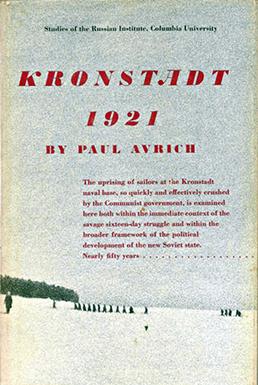MEDLINE is a bibliographic database of life sciences and biomedical information. It includes bibliographic information for articles from academic journals covering medicine, nursing, pharmacy, dentistry, veterinary medicine, and health care. MEDLINE also covers much of the literature in biology and biochemistry, as well as fields such as molecular evolution.
William Thomas Lowndes, English bibliographer, was born about 1798, the son of a London bookseller.

EBSCO Information Services, headquartered in Ipswich, Massachusetts, is a division of EBSCO Industries Inc., a private company headquartered in Birmingham, Alabama. EBSCO provides products and services to libraries of very many types around the world. Its products include EBSCONET, a complete e-resource management system, and EBSCOhost, which supplies a fee-based online research service with 375 full-text databases, a collection of 600,000-plus ebooks, subject indexes, point-of-care medical references, and an array of historical digital archives. In 2010, EBSCO introduced its EBSCO Discovery Service (EDS) to institutions, which allows searches of a portfolio of journals and magazines.
Current Biography is an American monthly magazine published by the H. W. Wilson Company of New York City, a publisher of reference books, that appears every month except December. Current Biography contains profiles of people in the news and includes politicians, athletes, businessmen, and entertainers. Published since 1940, the articles are annually collected into bound volumes called Current Biography Yearbook. A December issue of the magazine is not published because the staff works on the final cumulative volume for the year. Articles in the bound volumes correct any mistakes that may have appeared in the magazine and may include additional relevant information about the subject that became available since publication of the original article. The work is a standard reference source in American libraries and the publisher keeps in print the older volumes. Wilson also issues cumulative indexes to the set, and an online version is available as a subscription database.
Wild Flowers Worth Knowing is a book published in 1917 as a result of an adaptation by Asa Don Dickinson of Neltje Blanchan's earlier work Nature's Garden (1900).
ABC-Clio, LLC is an American publishing company for academic reference works and periodicals primarily on topics such as history and social sciences for educational and public library settings. ABC-Clio provides service to fifteen different online databases which contain over one million online textbooks. The company consults academic leaders in the fields they cover in order to provide authority for their reference titles. The headquarters are located in Santa Barbara, California.

Halsey William Wilson was the creator of the Readers' Guide, the Cumulative Book Index, and the Book Review Digest and founder of the H. W. Wilson Company, a publisher. In 1999, American Libraries named him one of the "100 Most Important Leaders We Had in the 20th Century".
Book Review Index is an index of book reviews and literary criticism, found in leading academic, popular, and professional periodicals. It has been published since 1965. For most of its history it has been owned by Gale and is based in Detroit.
American Literature is a literary journal published by Duke University Press. It is sponsored by the American Literature Section of the Modern Language Association. The current editors are Priscilla Wald and Matthew A. Taylor. The first volume of this journal was published in March 1929.
The Encyclopedia of Recorded Sound is a reference work that, among other things, describes the history of sound recordings, from November 1877 when Edison developed the first model of a cylinder phonograph, and earlier, in 1857, when Léon Scott de Martinville invented the phonautograph. The first edition – Guy Anthony Marco, Phd (editor), and Frank Andrews (1920–2015) – was published in 1993. The second 2-volume edition, published in 2005, spans one hundred forty-seven years of recorded sound. Frank W. Hoffman, PhD, of Sam Houston State University is Editor and Howard William Ferstler of Florida State University is Technical Editor.
A Legal Bibliography of the British Commonwealth of Nations, formerly Sweet & Maxwell's Legal Bibliography, is a bibliography of law published in London by Sweet & Maxwell.

Tomorrowland: Our Journey from Science Fiction to Science Fact is a 2015 nonfiction book by science journalist Steven Kotler and published by Amazon Publishing.

Kronstadt, 1921, is a history book by Paul Avrich about the 1921 Kronstadt rebellion against the Bolsheviks.

The Haymarket Tragedy is a 1984 history book by Paul Avrich about the Haymarket affair and the resulting trial.
Our Children Are Dying is a book-length extended portrait of Elliott Shapiro, the experimental principal of P.S. 119 in Harlem, New York, written by Nat Hentoff and published by Viking Press in 1966.

Footsteps: Adventures of a Romantic Biographer is an autobiographical book by the biographer Richard Holmes, published in 1985. Harper Perennial first published reprints of Footsteps in 2005.

Literary Research Guide is a reference work that annotates and evaluates important research materials related to English literature and English literary studies. The first edition appeared in 1989 and the fifth edition was published in 2008. These editions were printed books and the work was digitalized into an electronic version c. 2008.
Punished by Rewards: The Trouble with Gold Stars, Incentive Plans, A's, Praise, and Other Bribes is a 1993 book by Alfie Kohn that argues against the use of rewards to incentivize behavior.
Born to Buy: The Commercialized Child and the New Consumer Culture is a 2004 book by Juliet Schor on consumerist targeting of children.
Trashing the Planet: How Science Can Help Us Deal With Acid Rain, Depletion of the Ozone, and Nuclear Waste is a 1990 book by zoologist and Governor of Washington Dixy Lee Ray. The book talks about the seriousness about acid rain, the problems with the ozone layer and other environmental issues. Ray co-wrote the book with journalist Lou Guzzo.







